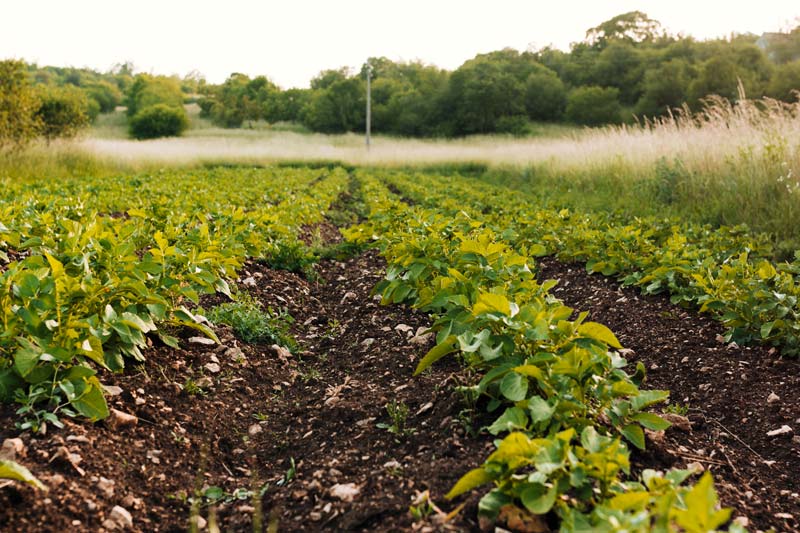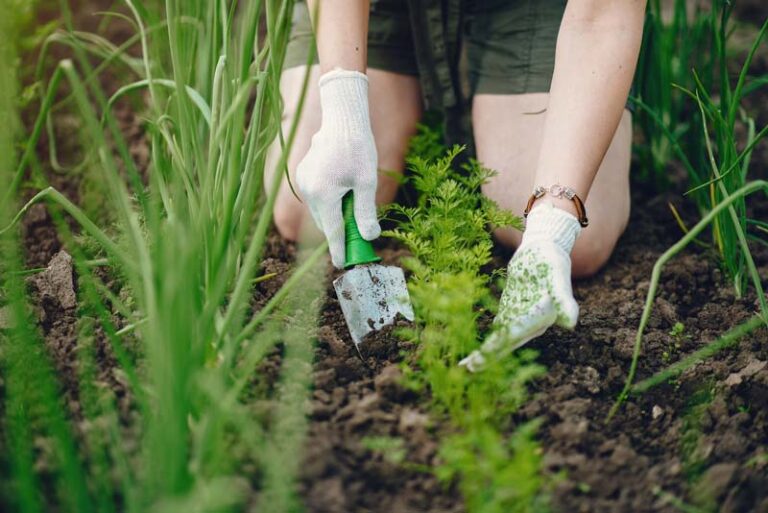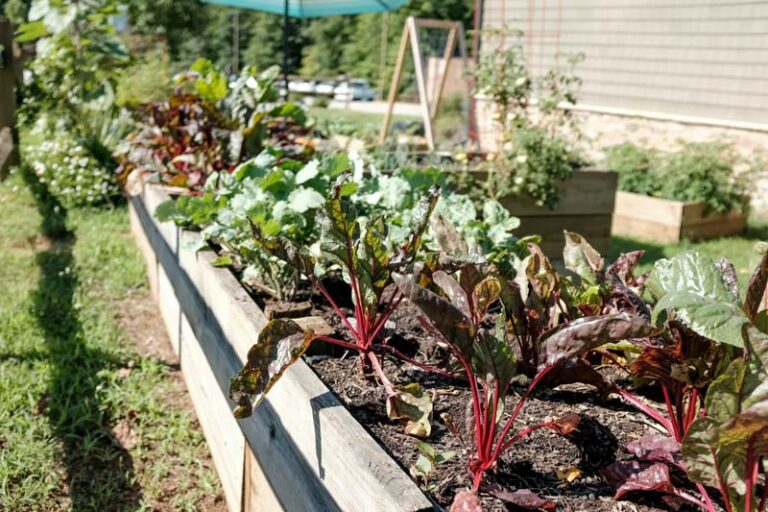- Free Estimates

Gardening has been proven to help improve mental health. It can help alleviate stress, anxiety, and sadness. It has the added benefit of elevating your disposition, fostering a greater sense of well-being, and bolstering confidence.
What better place to begin than your garden full of fresh, healthy vegetables? With a bit of planning and basic gardening knowledge, you can be successful on your way to growing your own fresh food. Here are some tips from reputable Ridgefield, CT, landscapers to get you started.

There are numerous benefits to growing your own vegetables at home. First, it is a wonderful way to enjoy the outdoors and stay physically active simultaneously. Plus, you can harvest your homegrown fresh vegetables when they’re in season, which is always a plus.
Growing vegetables in a garden can help you save money and provide your family with fresh, healthy food. Vegetables grown at home have better flavor and more nutrients than those bought in stores, and they can be cultivated without the need for toxic pesticides.
Making a vegetable garden is not only a fun activity to do outside but also allows one to take advantage of the clean and fresh air. More importantly, if you have children, it may be a rewarding learning experience for the whole family. If you want to take on a fun and fulfilling task that will pay off in tasty rewards, consider planting a vegetable garden in your backyard.
You can grow many different vegetables at home depending on where you live and how much space you have. Peppers, tomatoes, cucumbers, eggplant, squash, and herbs are some of the most popular choices. Vegetables can also be grown in containers on a porch or patio if limited in outside space.
Your preferences will also affect the vegetables you choose to grow. For example, if you have small kids, you should grow sweeter vegetables like peppers and tomatoes to ensure they are more likely to eat them.
Planning and finding out which vegetables will grow best in your area is essential to ensure a successful harvest. You may also seek help from local landscapers in Ridgefield, CT, to assess if your garden’s soil and space are well-suited for your vegetables.

The optimal time to grow your vegetables depends on the local climate. According to professional landscapers in Ridgefield, CT, the region has a humid continental climate. This implies that summers are often damp and hot, while winters are typically cold and snowy.
That being the case, the optimal time to sow seeds for your vegetables is in the spring, after the threat of frost has passed. However, the ideal time to plant your crops depends on the types of vegetables you wish to cultivate. Therefore, it is best to sow seeds indoors in early spring or late winter.
To start your vegetable garden with seedlings, you need to sow them indoors around 6 to 8 weeks before the last frost date. When the seedlings have reached the appropriate size for transplanting, they can be taken outdoors.
Suppose you buy seedlings from a garden center or nursery. You can usually transplant them outside within two to three weeks following the last frost date. Remember that you must consider the timing of maturity of the crops you are planting. Some vegetables, such as tomatoes, mature more slowly than others.
Consult a landscaper in Ridgefield, CT, or check the seed packaging or plant tag for the suggested sowing date for your particular vegetables.
With a little planning and commitment, you can have a thriving vegetable garden that yields fresh, delicious veggies throughout the entire season and year. Considering the abovementioned factors will set you on the path to gardening success. You may also consult the expert landscapers from Ridgefield’s Best Fence Company. They are always available to assist with landscaping, fencing, and gardening!